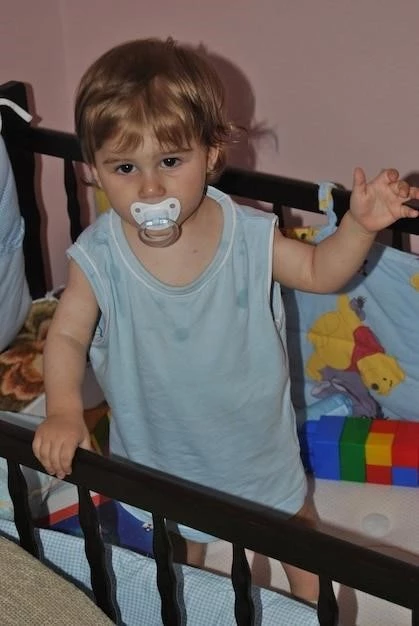Overview of Richieri–Costa–Montagnoli Syndrome
A rare genetic syndrome characterized by microbrachycephaly, wide forehead, hypertelorism, broad nose, syndactyly, and skeletal abnormalities.
Definition and Background
Richieri-Costa-Montagnoli Syndrome is a rare genetic disorder characterized by microbrachycephaly, wide forehead, hypertelorism, broad nose, syndactyly, and skeletal abnormalities. It typically presents in early childhood and has been associated with consanguineous parental relationships.

Clinical Features of Richieri–Costa–Montagnoli Syndrome
Characterized by microbrachycephaly, wide forehead, hypertelorism, broad nose, syndactyly, and skeletal abnormalities.
Physical Characteristics
A 6-month-old boy born of consanguineous parents presenting microbrachycephaly, wide forehead, marked hypertelorism, broad nose with a bilateral small blind dimple in each side, hypospadias, syndactyly between fingers 3 and 4, broad thumbs, and halluces suggests a diagnosis of a new type of acro-fronto-facio-nasal dysostosis.
Associated Skeletal Abnormalities
Richieri-Costa-Montagnoli Syndrome is also associated with skeletal abnormalities such as pectus carinatum, short thoracolumbar vertebrae, kyphoscoliosis, and irregular femoral epiphyses, contributing to the unique clinical presentation of the syndrome.
Diagnosis and Genetic Aspects
A 6-month-old boy born of consanguineous parents presenting typical physical characteristics may lead to a diagnosis of Richieri-Costa-Montagnoli Syndrome.
Diagnostic Process
The diagnostic process for Richieri-Costa-Montagnoli Syndrome involves a thorough clinical evaluation of physical features, genetic testing, imaging studies, and may be confirmed based on typical presentation in individuals born to consanguineous parents.
Genetic Inheritance Patterns
The Richieri-Costa-Montagnoli Syndrome is typically inherited in an autosomal recessive pattern, meaning that both copies of the responsible gene in each cell have mutations. Consanguineous parental relationships may increase the likelihood of passing on this genetic disorder.
Differential Diagnoses
In evaluating Richieri-Costa-Montagnoli Syndrome, differential diagnoses may include related dysostosis conditions and genetic syndromes.
Distinction from Other Syndromes
Richieri-Costa-Montagnoli Syndrome is distinguished from other syndromes by its unique combination of physical features including microbrachycephaly, wide forehead, hypertelorism, broad nose, and skeletal abnormalities like syndactyly and irregular femoral epiphyses.
Management and Treatment Approaches
Management of Richieri-Costa-Montagnoli Syndrome involves multidisciplinary diagnostic teams and rare disease expert consultation.
Multidisciplinary Diagnostic Teams
Diagnostic teams for Richieri-Costa-Montagnoli Syndrome often include professionals from genetics, neurology, orthopedics, and rare disease experts. These multidisciplinary teams work together to provide comprehensive care and management strategies tailored to the individual’s unique needs.
Rare Disease Expert Consultation
Consulting with rare disease experts is crucial in the management of Richieri-Costa-Montagnoli Syndrome to ensure accurate diagnosis, personalized treatment plans, and ongoing support for individuals and their families navigating this rare genetic disorder.

Prognosis and Complications
Individuals with Richieri-Costa-Montagnoli Syndrome may experience potential long-term effects related to the physical and skeletal abnormalities associated with the condition.
Potential Long-Term Effects
Individuals with Richieri-Costa-Montagnoli Syndrome may face potential long-term consequences related to the physical and skeletal abnormalities associated with this rare genetic disorder; These effects may impact various aspects of their health and overall wellbeing over time.
Current Research and Case Studies
Research findings focus on syndrome delineation and genetic aspects to differentiate similar conditions from Richieri-Costa-Montagnoli Syndrome.
Research Findings on Syndrome Delineation
Recent research focuses on syndrome delineation in Richieri-Costa-Montagnoli Syndrome to better understand its unique characteristics and differentiate it from other related conditions. Studies aim to identify specific genetic markers and clinical features that define this syndrome.
Support Resources and Patient Care
Coping strategies for patients and families dealing with Richieri-Costa-Montagnoli Syndrome are crucial for managing the challenges associated with this rare genetic disorder.
Coping Strategies for Patients and Families
Richieri-Costa-Montagnoli Syndrome patients and their families benefit from coping strategies to navigate the challenges associated with this rare genetic disorder, ensuring emotional support and assistance in managing the complexities of the condition.
